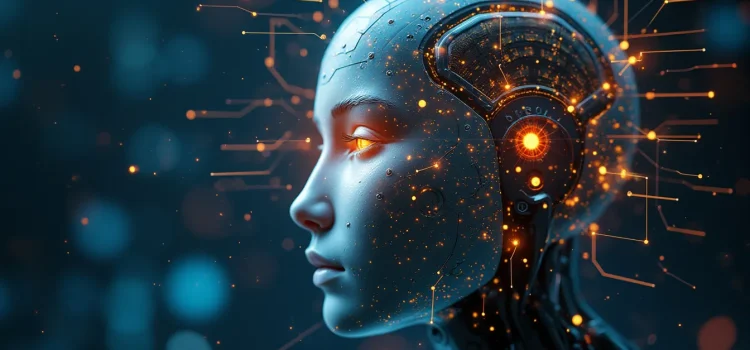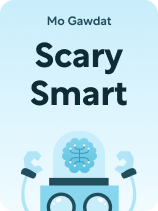

This article is an excerpt from the Shortform book guide to "Scary Smart" by Mo Gawdat. Shortform has the world's best summaries and analyses of books you should be reading.
Like this article? Sign up for a free trial here.
What might AI be capable of in the coming years? What is artificial general intelligence (AGI)?
Mo Gawdat, author of Scary Smart, delves into the concept of artificial general intelligence. He explains how current AI systems may evolve into more versatile and human-like forms of intelligence. Gawdat discusses the potential timeline for AGI development and its implications for our world.
Keep reading to discover the fascinating possibilities and challenges of AGI and what experts are saying about this groundbreaking technology.
Artificial General Intelligence
While the AI systems we have now are smart, they’re good at processing just one kind of information or helping us with a specific type of task. Gawdat explains that the specialized forms of AI we have now will give way to what experts call “artificial general intelligence.”
So, what is artificial general intelligence (AGI)? While current forms of AI are trained to master a single skill, AGI would be much less limited, much more versatile, and much more like human intelligence.
To think about how this works, consider ChatGPT. ChatGPT is a chatbot based on GPT, a large language model that generates text by predicting what word is most likely to come next. ChatGPT is good at just one task: generating text. But it’s so good at that task that many people enjoy having conversations with ChatGPT—or at least trust it enough to give it tasks like writing academic papers or legal briefs. Gawdat explains that, instead of having just one kind of intelligence like ChatGPT, future forms of AI will have and be much more than that: They’ll be able to learn and gain knowledge across different areas. That means they’ll excel at not just a single task but a whole array of tasks.
| Is Artificial General Intelligence Possible? Gawdat doesn’t cite a specific expert for the prediction that AI smarter than humans could arrive by 2029. But both futurist Ray Kurzweil and Tesla CEO Elon Musk have mentioned 2029 as a likely date for the arrival of superintelligent machines. Kurzweil, who wrote The Singularity Is Near, contends that by 2029, AI will be able to understand what we say and learn from what it experiences. Similarly, Musk predicts that AI will be instrumental in helping us to “understand the universe,” especially if we train it to be curious and to seek the truth. Experts haven’t agreed on a technical definition for “artificial general intelligence,” but many think of it as machine intelligence that understands the world as well as humans do. That might sound straightforward enough, especially for models trained on vast datasets. But understanding is complex: It involves learning, reasoning, and generalizing knowledge across many domains. Training a model on an enormous dataset doesn’t give it the creativity, empathy, or real-world experience to comprehend that knowledge. Instead of understanding, AI memorizes and mimics. For instance, while ChatGPT can write an essay, it doesn’t understand what individual words mean. Many researchers agree with Gawdat that AI will become more intelligent than humans and that AGI will eventually arrive. But many say we’re far away from AI that’s as smart as humans. Even optimistic predictions say AI is unlikely to replicate human intelligence fully. Many researchers predict AGI won’t become a reality due to AI’s inability to understand human language. Plus, persistent technical challenges stand between us and the models with broader skills. To generalize their knowledge, AI models built like ChatGPT or Google’s Bard will need to become more and more massive, with vast amounts of power and data—unless we can find a workable alternative that demands less data. |

———End of Preview———
Like what you just read? Read the rest of the world's best book summary and analysis of Mo Gawdat's "Scary Smart" at Shortform.
Here's what you'll find in our full Scary Smart summary:
- Why we can’t control or contain artificial intelligence
- The most efficient way to change what AI learns to do
- How to keep AI from taking us down a path toward dystopia






